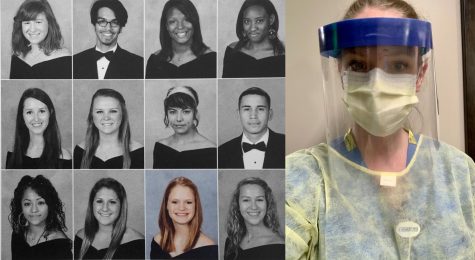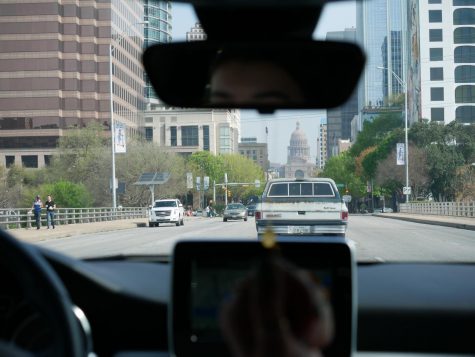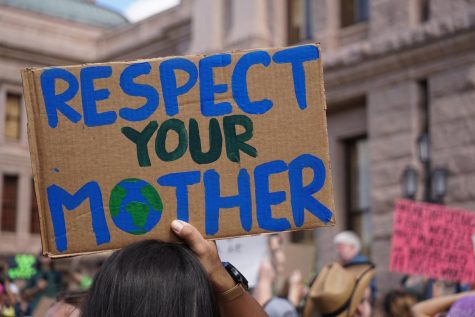NSPA Writer of the Year portfolio
I’ve always been told I’m a bit of a loudmouth.
Spurting my unsolicited opinions, questioning everything and really analysing/overanalyzing the world around me- c’est moi. It stems from a love for life, a deep yearning to capture and explore the moments around me. Alas, I found my way to room 134, home of McCallum journalism, ready to raise a ruckus.
And I did raise a ruckus. Except, said ruckus was different than what I’d originally pictured. My first story, “To Annotate or Not to Annotate: That is the Question,” was cut from our first issue about an hour before we sent it to print. A real blow, I know. Turns out that “news” stories are different from “opinions” stories. This is when I learned the word that would haunt me for the rest of the year- editorializing. OK, point taken. Next issue, I wrote “Perpetuating The Fight Against Climate Change” (which I am including in this portfolio). This time, there was a slightly better outcome: my story wasn’t cut, but it was moved to “opinions” about four hours before we sent it to print (running late… perhaps this is a recurring theme).
Jokes aside, issue three was really where I found my groove. Actually committing from the beginning this time to writing an opinion piece, I wrote “Happy Challahdays,” a personal column of sorts depicting my struggles of being Jewish during Christmas/holiday season at school. This time there was no hiccup in getting my story published. I never viewed this story as some ground-shattering piece, just me telling a funny anecdote of me singing the wrong holiday songs and directing some somewhat sarcastic hits at the American school system. But then I saw how good, authentic journalism has the power to impact people. A mom who I don’t know commented on the story saying how she went through the same experience, and teachers started to say “holiday break” instead of “Christmas break” more often, and people struck up conversations with me about how Christianized America is.
Good journalism does good things. Authenticity and a little humor do magic. These were the lessons I walked away with from what I deemed my first wholly successful journalism story.
And thank lord I had some experience under my belt before the craziest thing to ever grace my life happened. COVID-19 became the phenomenon that consumed American minds, hearts and lives. The lives and livelihoods of hundreds of thousands of Americans were permanently intertwined with COVID, each affected in their unique ways. So with the promise to stay authentic to myself and to the people I was to write about, I set out to document these unprecedented times of hope, fear, despair and in more than a few cases, puppies (you’ll see).
All three COVID-19 stories I’m submitting in this portfolio are extremely dear to me. Each represent one of the three elements I think define the COVID-19 experience: shock, hope and bravery.
Shock is represented in “Amid coronavirus fears, city cancels SXSW.” Told through the heartfelt anecdotes of MAC students and families involved in the festival, the story encompassed the surprise, anger and fear present when COVID switched from being “over there” to being “over here.”
Hope is demonstrated in “Pandemic prompts proliferation of puppy parents,” a story about four new McCallum teachers turned puppy parents. Let’s face it, people love a good story about animals. Overflowing with love, light and puns, and with a featured quote about dog pee, my goal with this story at first was simply to bring a smile to the readers face. But as I continued writing my story, talking to the new puppy owners who gushed and gushed about their new pooches, I realized that this was more than a feel-good piece. “Proliferation of puppy parents” was about people finding light in the dark, about staying positive and making the most out of a pretty sucky situation. Not to mention the New York Times published virtually the same article as me eight days later. Imitation is the sincerest form of flattery.
Lastly is bravery, exemplified in “From the band hall to the COVID-19 hospital unit,” a feature about Lindsey Wagner, a McCallum alum who is now working full time as an ICU nurse. Nothing has ever affected me as much as hearing Lindsey’s stories. Hearing the resilience, pain and hope in her voice, her admittance of being scared, of feeling alone, and her post-interview email explaining she tested positive for COVID-19 all hit me like a rock. It took a lot of work and restraint to not turn this piece into a feature simply about how amazing Lindsey is. There was about three or four rounds of edits where I was told to tone down my flattery and editorializing regarding Lindsey. But eventually we hit gold. This piece transcends the individual story of one ICU nurse, instead painting an accurate and authentic picture of what happens in the COVID-wing and making clear through reporting the importance of social distancing among other measures. It was important, I thought, to start the story with Lindsey as a high school student in the band room at our school, because it proves that the people you see in your math class, the hallway, or in this case, the band hall, may one day grow up to be heroes.
To me, journalism, at its core, is simply just storytelling. Sometimes there’s a smile. Or a laugh. Or a grimace, or a sinking feeling of dread or even a tear. Good journalism is authentic journalism. As journalists, we’re trusted to tell the truth.
But who said the truth couldn’t be a beautiful thing?
Your donation will support the student journalists of McCallum High School. Your contribution will allow us to purchase equipment and cover our annual website hosting costs.






